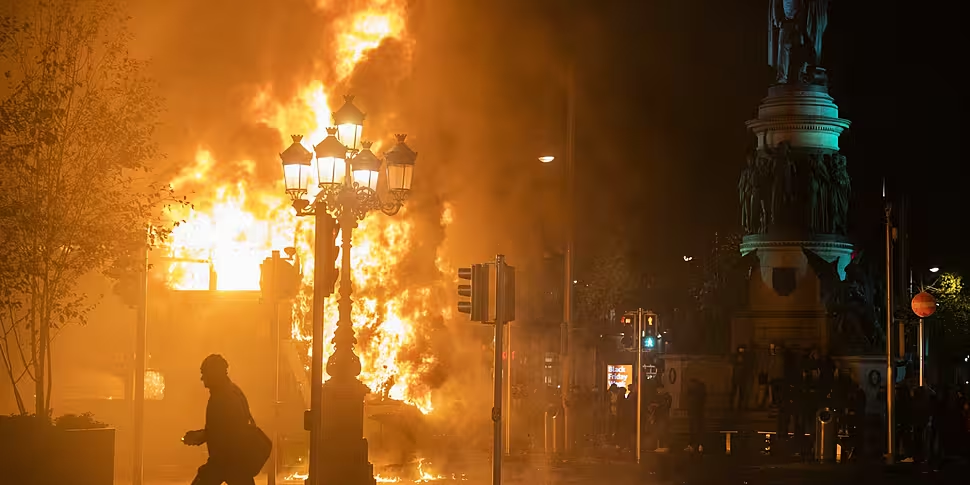Rioters could face up to 10 years in prison or a hefty fine under new legislation.
In the aftermath of the riots in Dublin city centre three weeks ago, the offences of riot and violent disorder were added to the proposed Facial Recognition Technology legislation.
It means if another riot, similar to those in Dublin on November 23rd, happened again, the maximum penalty would be an unlimited fine or a prison sentence of up to ten years.
The legislation would also allow for the retrospective use of facial recognition technology when Gardaí are searching CCTV footage.
“We are already seeing Gardaí having to trawl through thousands of hours of CCTV – 12,000 hours in the case of the Dublin riots," Minister McEntee said.
“Facial recognition technology will dramatically save time, speed up investigations and free up Garda resources for the high-visibility policing we all want to see.
“Reducing the amount of time it takes Gardaí to go through video footage will be of particular help where time is of the essence following a very serious crime being committed.
Government approval
Justice Minister Helen McEntee has received Cabinet approval for the draft Facial Recognition Technology Bill and the details of the legislation will be published later today.
The Government hope the technology will serve as a "major deterrent" to potential criminals and expect the bill to be fast-tracked through the Oireachtas.
Despite this, the legislation is likely to prove controversial; Labour has previously described the technology as “not the solution to our problems” and the Irish Council on Civil Liberties has condemned it as ‘not accurate’.
Main image: A fire on Dublin's O'Connell Street during looting and rioting on 23/11/2023. Image: Sam Boal/Rollingnews.ie









